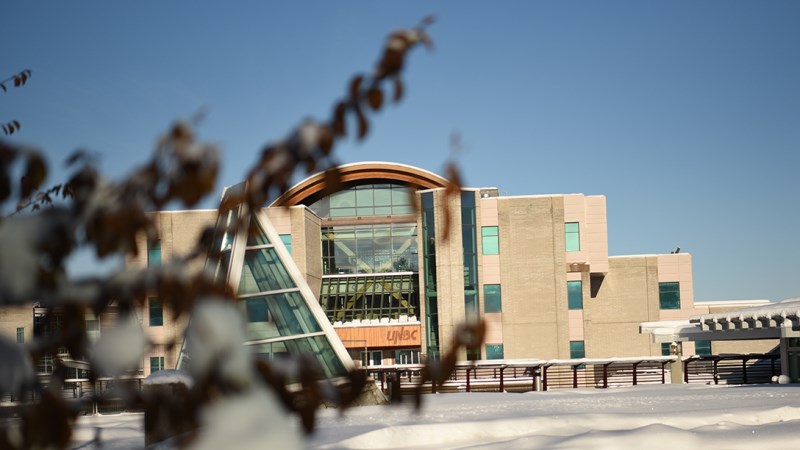The University of Northern British Columbia's board of governors approved a two-per-cent increase to tuition fees on Friday - but students will be sheltered from the hike for the coming school year in the form of financial aid equivalent to the jump.
It means a typical undergraduate student will continue to pay the same $184.43 per credit hour they did during this past year which works out to $5,533 for 10 courses over two semesters as governors provided short-term relief while also thinking about long-term implications.
"I think we recognized that university students here as well as those coming have had quite a unique challenge with COVID and we felt that, as a board, and was discussed and approved, that we want to do something different," acting UNBC president Geoff Payne said.
"We recognized that a tuition fee increase is important and so we did that, but we also decided to give back for this year, which I think it an important investment in the students."
Two per cent is the maximum increase the provincial government allows B.C.'s universities and colleges to impose.
The board took the step while also approving a $103.6-million for 2021-22. The total is about $1.4 million less than the budget for the previous fiscal year as UNBC enters the second year of a four-year campaign to balance its budget without dipping into reserves.
Payne said the deficit for 2020-21 stood at $3 million and is expected to decline to $2.2 million for the coming fiscal year. In February, layoff notices effective April 1 were given to nine staff as part of cost-reduction efforts, saving about $800,000 in the process.
UNBC is also going through a major organizational change. Starting April 1, two colleges (College of Science and Management and College of Arts, Social and Health Sciences) will be disbanded in favor of five faculties: Faculty of Science and Engineering, Faculty of Human and Health Science, Faculty of Business and Economics, Faculty of Environment and Faculty of Indigenous Studies, Social Sciences and Humanities.
Each of the faculties will have its own dean, which Payne said will translate into improved support of faculty members' academic and research ambitions and "build upon UNBC's strengths and recognize what students in the 21st century want."
Payne also hopes the move will translate into increased enrollment. The school's head count stood at 3,438 for 2020-21, up by 31 from the previous year, but down 82.5. in terms of full-time equivalents, which stood at 2,599.
There is also a good chance students will be able to return to in-person lectures and labs by September as B.C. Provincial Health Officer Dr. Bonnie Henry said earlier this month that B.C.’s schools will look “much more normal” by that time.
Payne said UNBC is waiting for details from the provincial government on what will and will not be allowed niy welcomed Henry's decision to give the heads up sooner rather than later.
"My sense is there is still going to be masks coming into the fall. Whether or not the two-metre rule applies and how we then implement those types of restrictions into how we offer courses on campus (remains to be determined)," Payne said.



